Preached by the Rev. Dr. Lawrence R. Rast Jr., President of CTSFW.
What is there not to like about a text like this? Luke 18:18-30. It is the perfect text for an opening service. I know this because I preached on it at the Opening Service in 2016. That means you can go back into the archives and see if this is the same sermon.
It’s a great text. It’s straight forward. And in a sense it’s rather easy, isn’t it? You have something of a David and Nathan situation (2 Samuel 12), where Jesus takes the place of the prophet and the rich ruler becomes “that man.” Jesus sets the man up to be confronted by his own self claims. And yet the resolution is quite different in the two stories.
David’s anger is kindled against “the man” that Nathan is about to show him is himself. He is confronted, and he is crushed. And Psalm 51 shows his repentance. The rich ruler, on the other hand, fades out of the story without resolution. He is sad. But, nevertheless, it is clear that he is the bad guy and we do have a righteous and prophetic interpreter who unmasks his hypocrisy. Couldn’t be clearer!
But as I worked with the text, I began to wonder: where is the good guy in all of this? It seems to me that this story lacks an overt hero. Yes, obviously Jesus is good. Only God is good, as we hear. But where is the hero? Shouldn’t there be someone who jumps in and says “I have done all these things!” And yet we don’t find him. We don’t have a Lutheran in the crowd who would explain all the points of doctrine to all the hearers. “This is what this means.”
Well, in a sense I suppose, “This is impossible,” is the correct response. But the simple fact is that the story lacks a clean, human outcome. It isn’t tied up neatly. In fact, I think if St. Luke had submitted this to our faculty, they might’ve returned it and said, “Needs more work.”
Honestly, that’s unfair, and misses the point. For this narrative of the interaction of Jesus and the rich ruler, and the response of the crowd, and then the response of Peter, this narrative gives us a great summary of the human condition—all facets—in about 250 words. The rich ruler starts the whole thing out right, at least in a sense, by asking, “What must I do to inherit eternal life?” Not “earn” but rather “receive as a gift.” That’s a well-formed question, I would say. He doesn’t say, “It’s all about met.” Yet.
In fact, it is Jesus who turns the conversation to doing. “You know the commandments,” he says. “Do not commit adultery, do not murder, do not steal, do not bear false witness, honor your father and your mother.” Do, do, do, do. It sounds like the baby shark song. (If you don’t know what I’m talking about, just check on YouTube, join the other three million viewers who’ve watched that video.)
Now that I’ve distracted you, let’s get back to the heart of the matter. Jesus recognizes that the rich young ruler knows the commandment and therefore he should do them. It’s the moment of truth. And the rich young ruler fails. “All these I have kept from my youth.” There’s your hero! Right?
The thing is, I believe he truly means it. He believes it. “All these things I have kept from my youth.” So Jesus calls his bluff. Let me telling you what doing actually looks like. “One thing you still lack” (seems to me it’s more than one) “sell all that you have, distribute to the poor—you’ll have treasure in heaven—and come follow me.”
Sell. Distribute. Follow. Simple enough, right? And simple enough for the rich ruler to fold his hand; Jesus has trumped. At which point, to return to our earlier point, it seems to me that there should be someone who jumps in and says, “I have done that.” Rightly! But instead, the crowd has gotten Jesus’ point quite well. I suspect that initially all of them would have said, “I have done this.” But by this point in the narrative, they see where Jesus is going. When Jesus says, “Sell, distribute, follow,” they realize they cannot do it. And their cry is a new one: “Who then can be saved?”
And Jesus answers, “What is impossible with man, is possible with God.” And it is more than possible. It is finished.
What is impossible with man is possible with God, for Jesus not only knows the commandments, He has done them; for us. For Jesus, true man and true God—or (to put it a little differently) the true rich ruler—became poor and emptied himself, that we in turn might become rich. He gave it all away, everything that was his by rights. To you and to me. Distributed it to us, by His grace. That which He had earned by His perfect life and His suffering and death on the cross. The fruits of His resurrection, His life, suffering, death, are yours. Perfect. End the story here, and you have the hero.
But then there’s Peter. As, after Jesus has re-centered His hearers on His person and His work for them, Peter tramples all over the narrative by shouting, “See! We have left our homes and followed you.”
And then there’s us. We are the Peters of this text. If you haven’t said this already, you will. We all do. It is a way of making a claim upon God on our part. “God, I have done all this for you. I have left everything. I have sold all. I have gone to the Seminary. I am the hero.” And so we might expect Jesus to crush Peter and to crush us, just as he did the rich ruler. But then comes the wonderful twist of this narrative, where Jesus says to Peter (and to you and me and all those gathered), “Truly, I say to you, there is no one who has left house or wife or brothers or parents or children, for the sake of the kingdom of God, who will not receive many times more in this time, and in the age to come, eternal life.”
You have left your homes to follow Jesus. But this act in and of itself won’t save you. There is only one who saves; our Lord Christ. Your actions in the classroom over the next 10 weeks will not save you. Nor will the ones in the years to follow. Grades do not save. Grace alone saves.
But, as those who have left home and family and familiar settings to follow Christ, His promise of blessing for you is sure and certain. The inheritance is yours, earned by Christ for you. The call to service in His service begins anew today, our 174th academic year. And the promise of blessing for each and every one of us at this Seminary is firm. You will receive many times more, in this time, and in the age to come, eternal life.
In the name of the Father and of the Son and of the Holy Spirit.
Congregation: Amen.
And finally, Dr. Rast’s words of greeting at the end of the service, which mentions the two installations that followed the sermon, for Rev. Adam Koontz (Assistant Professor of Exegetical Theology) and Deaconess Katherine Rittner (Director of the Food & Clothing Co-op):
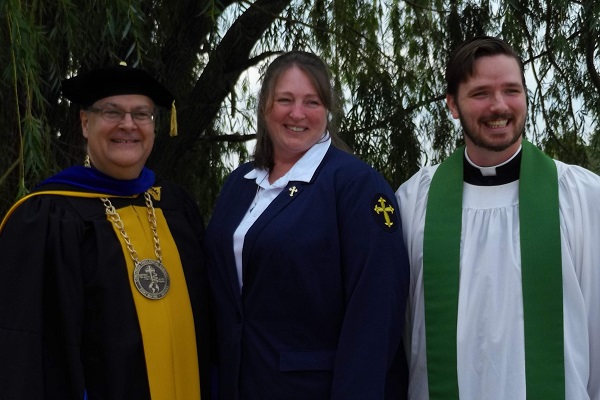
It is a delight to welcome you here on this day we open our 174th academic year, and anticipate the manner in which our Lord will continue to bless and preserve His Church. We are particularly thankful for the gifts that he bestows on us in such a concrete way: the gift of Professor Koontz, Deaconess Rittner, and our incoming class. It is good to welcome all of you to this place, and to look forward to the way God will continue to shape you and through you shape all of us as we carry out our mission of forming servants in Jesus Christ who teach the faithful, reach the lost, and care for all.
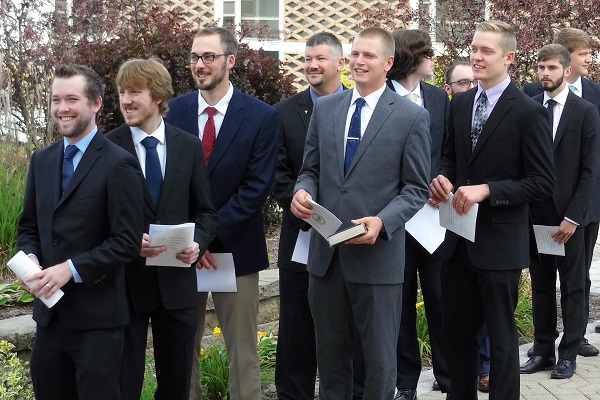
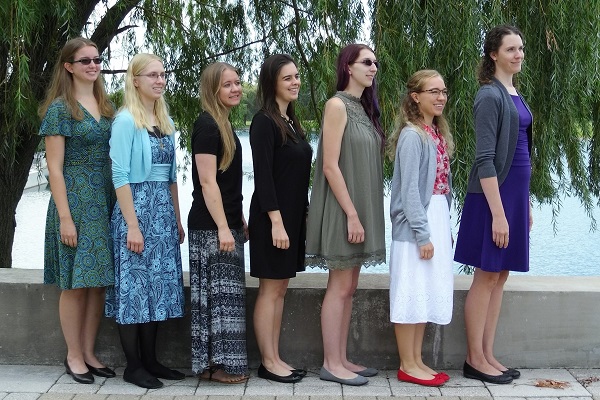

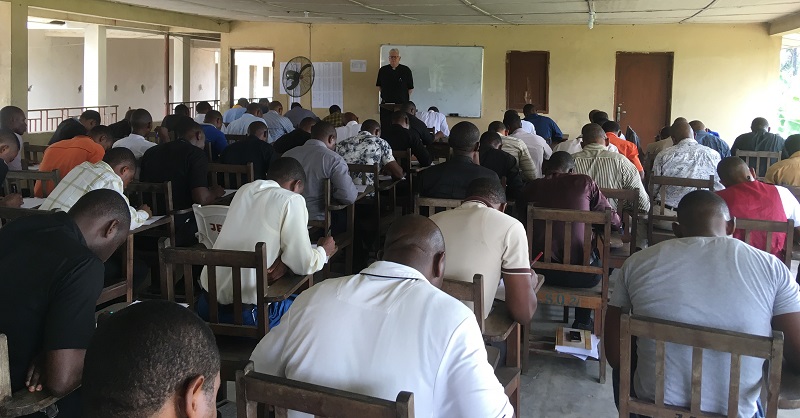
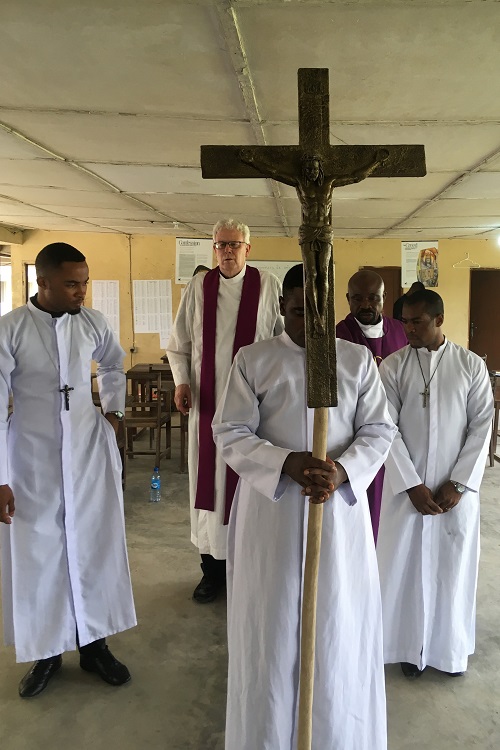
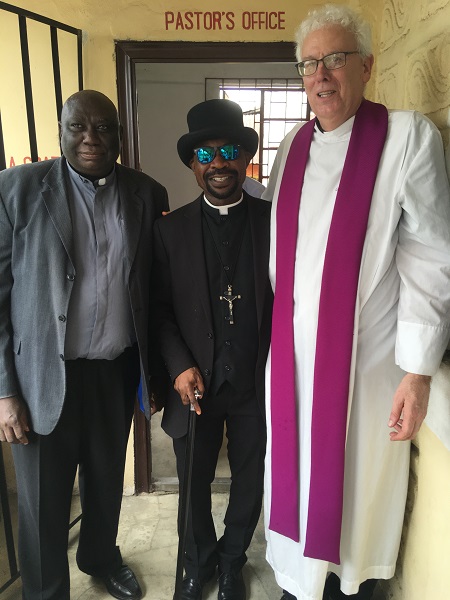
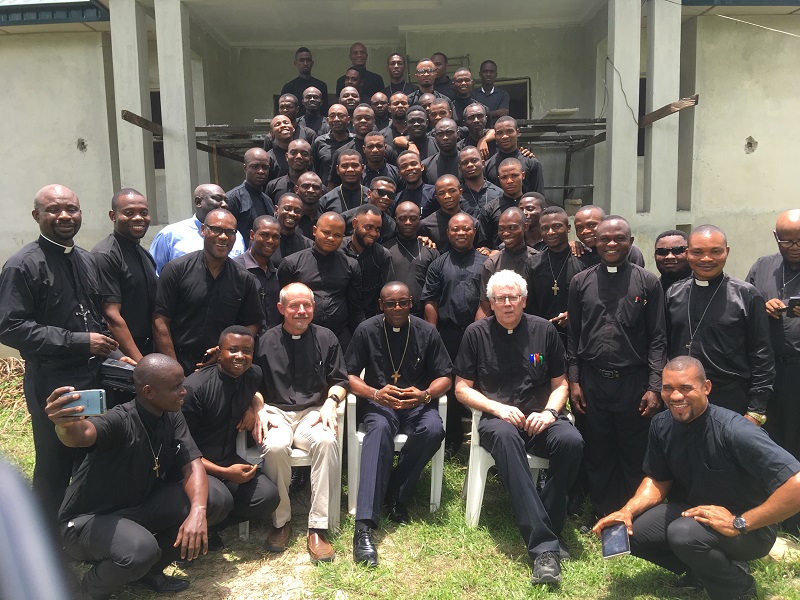
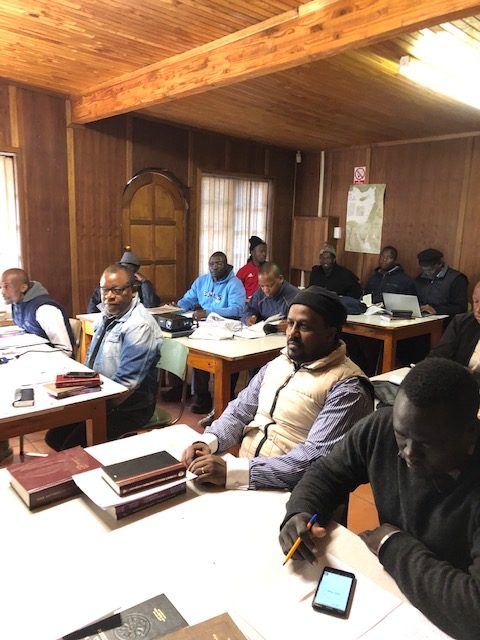 Earlier in the summer, Prof. John Pless (Assistant Professor of Pastoral Ministry and Missions as well as Director of Field Education) was in Tshwane, South Africa, teaching an intensive course at the Lutheran Theological Seminary (LTS). From July 28–August 9 he taught a class of 25 students, finishing out a five course series based on the five volumes of “Commentary on Luther’s Catechisms” by Albrecht Peters. Residential LTS students along with pastors and lay preachers from various South African Lutheran bodies attended the series on how to teach, preach, and provide pastoral care based on each section of the Lutheran Confessions.
Earlier in the summer, Prof. John Pless (Assistant Professor of Pastoral Ministry and Missions as well as Director of Field Education) was in Tshwane, South Africa, teaching an intensive course at the Lutheran Theological Seminary (LTS). From July 28–August 9 he taught a class of 25 students, finishing out a five course series based on the five volumes of “Commentary on Luther’s Catechisms” by Albrecht Peters. Residential LTS students along with pastors and lay preachers from various South African Lutheran bodies attended the series on how to teach, preach, and provide pastoral care based on each section of the Lutheran Confessions.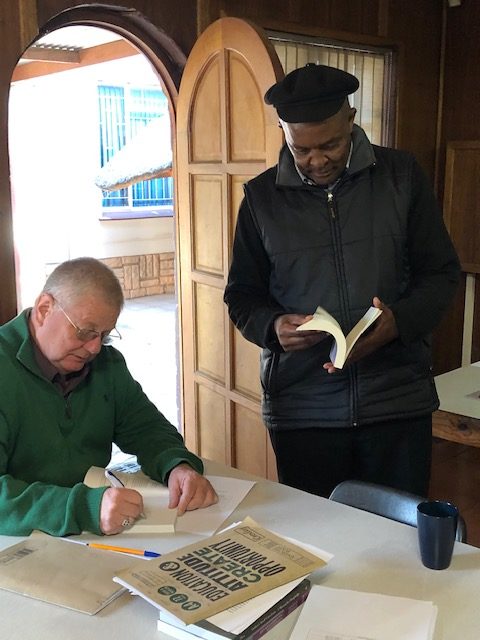 For three hours each morning, Prof. Pless covered the fifth volume of Peters’ commentary, teaching about Confession and Absolution as well as the daily prayers and the table of duties in the Small Catechism. He used his newest book, “Luther’s Small Catechism: A Manual for Discipleship,” as a supplement. Donors from the United States provided both books for the students.
For three hours each morning, Prof. Pless covered the fifth volume of Peters’ commentary, teaching about Confession and Absolution as well as the daily prayers and the table of duties in the Small Catechism. He used his newest book, “Luther’s Small Catechism: A Manual for Discipleship,” as a supplement. Donors from the United States provided both books for the students.
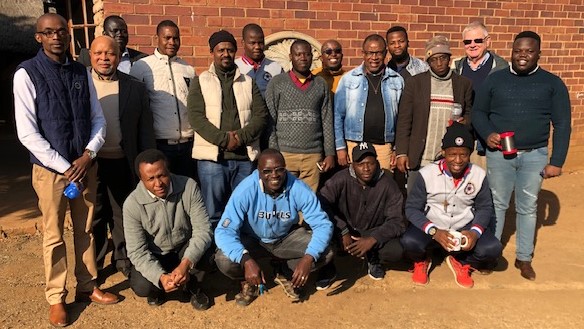

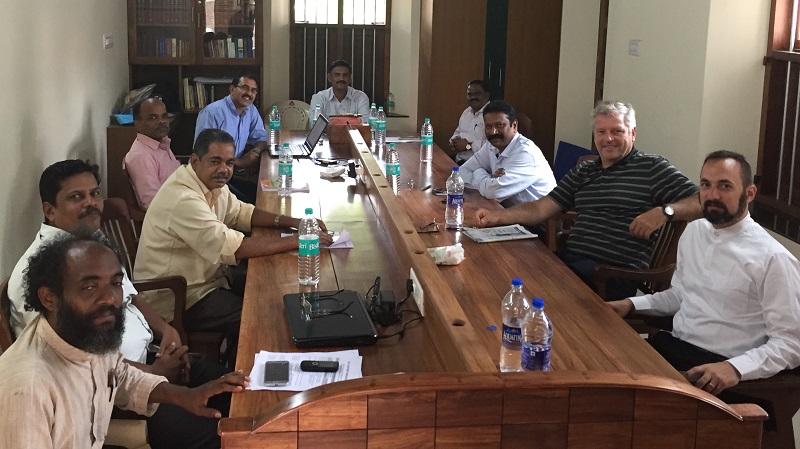

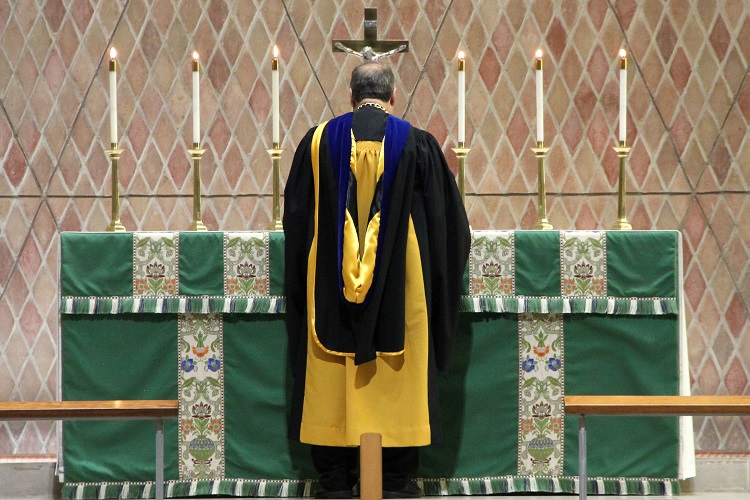
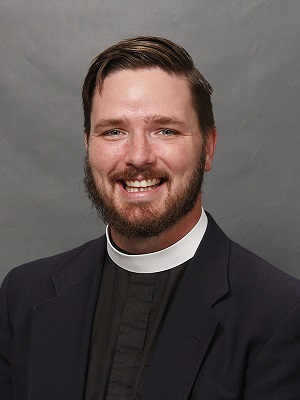 Prof. Koontz will teach courses related to the New Testament, beginning with Gospels 1 and Greek readings. In the winter and spring quarters, he will teach lecture courses on Paul, his specialty. “The faculty is very excited to welcome Rev. Koontz to our midst,” said Academic Dean, the Rev. Dr. Charles A. Gieschen. “He brings both expertise in the Pauline Epistles and fine recent pastoral experience that will be a blessing to our students. He’ll also,” he added, “bring down the average age of the faculty.”
Prof. Koontz will teach courses related to the New Testament, beginning with Gospels 1 and Greek readings. In the winter and spring quarters, he will teach lecture courses on Paul, his specialty. “The faculty is very excited to welcome Rev. Koontz to our midst,” said Academic Dean, the Rev. Dr. Charles A. Gieschen. “He brings both expertise in the Pauline Epistles and fine recent pastoral experience that will be a blessing to our students. He’ll also,” he added, “bring down the average age of the faculty.”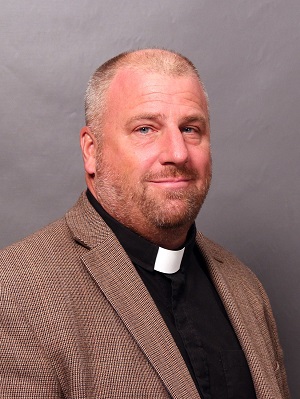 Additional changes were made to the faculty earlier this summer, when the Board of Regents took action at their May meeting to advance both the Rev. Dr. Peter J. Scaer and the Rev. Dr. Naomichi Masaki from the rank of Associate Professor to the rank of full Professor. “It’s nice to have my title shortened by four syllables,” Dr. Peter Scaer pronounced. “But, more seriously, it’s a time to reflect on my service, and to offer thanks for such a wonderful place as CTSFW. There isn’t a better place to study and teach theology. And at a time when the world so desperately needs Christ, it’s an honor to be a part of what’s happening here in Fort Wayne.”
Additional changes were made to the faculty earlier this summer, when the Board of Regents took action at their May meeting to advance both the Rev. Dr. Peter J. Scaer and the Rev. Dr. Naomichi Masaki from the rank of Associate Professor to the rank of full Professor. “It’s nice to have my title shortened by four syllables,” Dr. Peter Scaer pronounced. “But, more seriously, it’s a time to reflect on my service, and to offer thanks for such a wonderful place as CTSFW. There isn’t a better place to study and teach theology. And at a time when the world so desperately needs Christ, it’s an honor to be a part of what’s happening here in Fort Wayne.”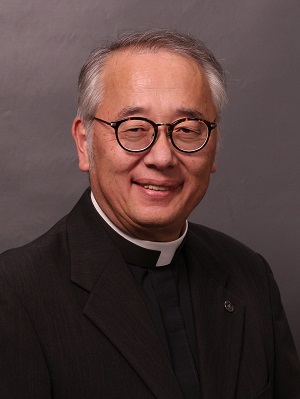 “I am truly humbled by this advancement, deeply thankful to the board and the administration for their trust and recognition,” said Dr. Masaki. “Still, far greater confidence comes from the Lord who has called me to this beloved seminary. It remains my utmost joy and privilege to serve Him alongside my dear colleagues He brought together as a team.”
“I am truly humbled by this advancement, deeply thankful to the board and the administration for their trust and recognition,” said Dr. Masaki. “Still, far greater confidence comes from the Lord who has called me to this beloved seminary. It remains my utmost joy and privilege to serve Him alongside my dear colleagues He brought together as a team.”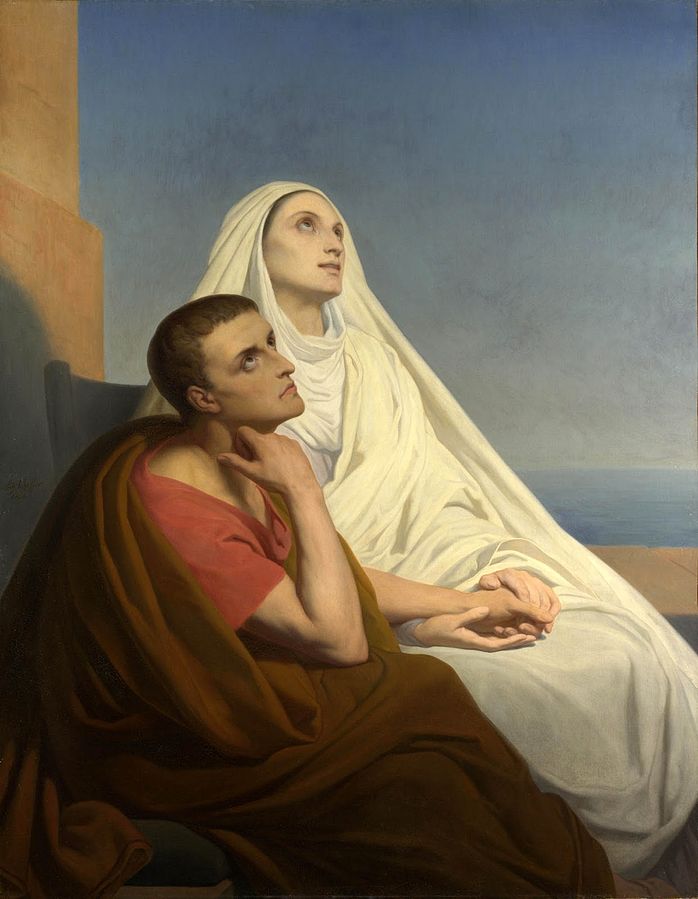
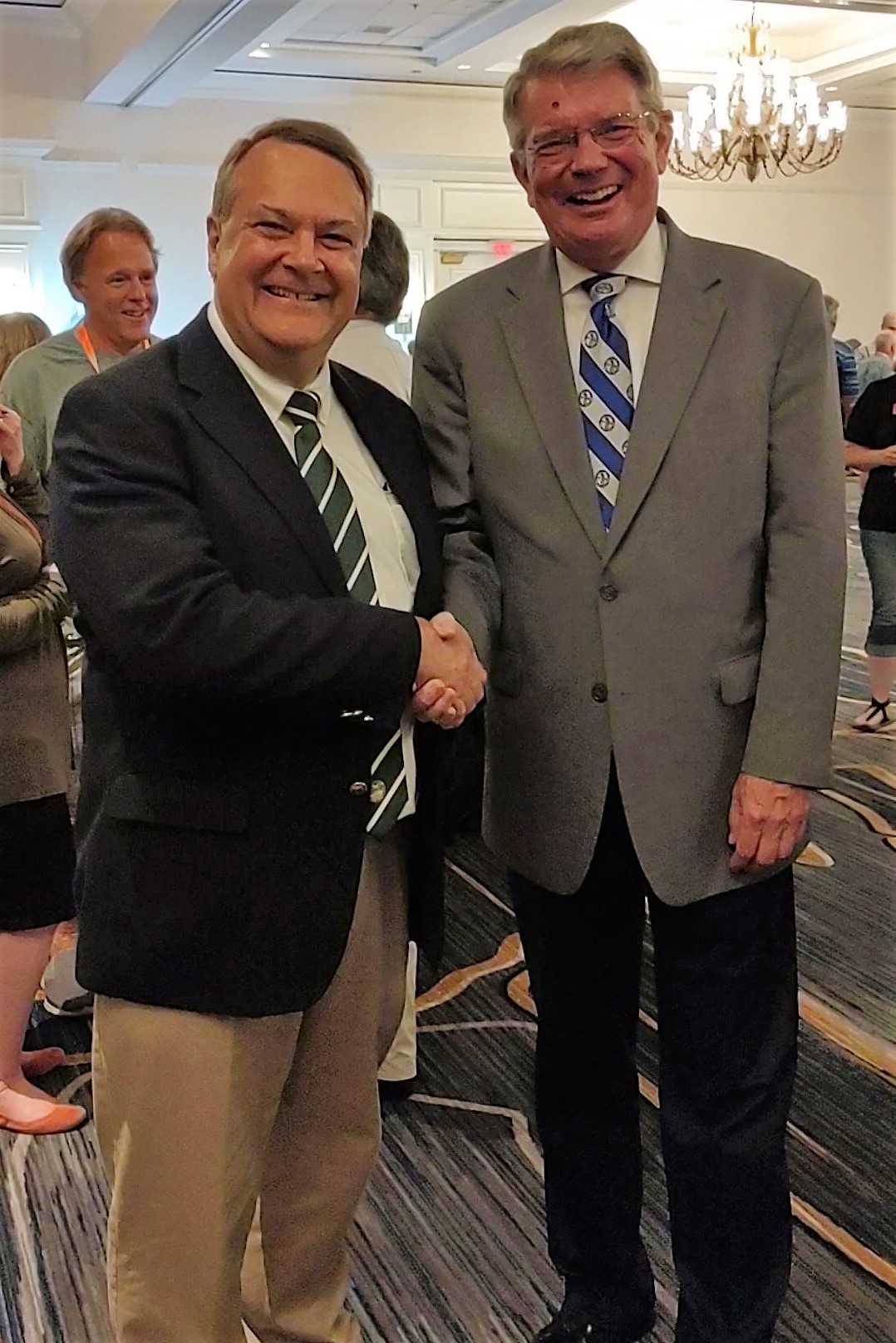 The 67th Convention of The Lutheran Church—Missouri Synod (LCMS) came to a close in Tampa, Florida, on July 25, 2019, but not before the committees and representatives from congregations across Synod made an impact on both Concordia Theological Seminary, Fort Wayne (CTSFW), and our sister seminary, Concordia Seminary, St. Louis (CSL). This year, CSL joined CTSFW to create a joint booth in the convention hall, demonstrating the collegiality between the seminaries and reflecting the reality that, though we are two distinct institutions, sharpening each other as iron sharpens iron, we exist for the same Church and mission: that the Lord of the harvest may send more laborers into His harvest.
The 67th Convention of The Lutheran Church—Missouri Synod (LCMS) came to a close in Tampa, Florida, on July 25, 2019, but not before the committees and representatives from congregations across Synod made an impact on both Concordia Theological Seminary, Fort Wayne (CTSFW), and our sister seminary, Concordia Seminary, St. Louis (CSL). This year, CSL joined CTSFW to create a joint booth in the convention hall, demonstrating the collegiality between the seminaries and reflecting the reality that, though we are two distinct institutions, sharpening each other as iron sharpens iron, we exist for the same Church and mission: that the Lord of the harvest may send more laborers into His harvest.